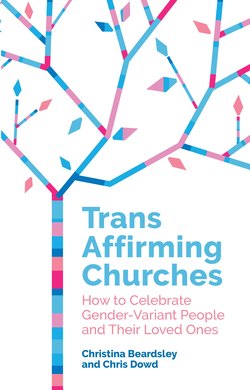Читать книгу Trans Affirming Churches - Chris Dowd - Страница 21
На сайте Литреса книга снята с продажи.
Transgender people’s experience of being trans – what some of our participants said
ОглавлениеEach one of us has a gender identity. For those who are cisgender, i.e., people who are not trans, (cis being the Latin for ‘on the same side’) their gender identity matches their gender as assigned at birth based on their biological sex. Trans people, on the other hand, experience a mismatch or disjunction between their gender as assigned at birth (usually based on their genitals or their secondary sex characteristics) and their gender identity.
For example, parents and family may be raising a child as a girl on the presumption that she will develop into woman, but the child identifies as a boy and will at some stage transition and live as a man. We’re not referring to girls who behave as ‘tomboys’: playing with boys, preferring their games and sports and adopting a stereotypical ‘boyish’ appearance. Such a child could grow up to be trans, but there is more to the trans experience than that. Either as child, adolescent or adult (or at all three stages) the trans individual will experience strong identification with the gender to which they eventually transition; or, if they are non-binary or genderqueer, they do not identify with being male nor female.
Most people who are not trans take their own gender identity for granted. The difference for trans people is they experience a discrepancy between who they are and who other people presume them to be. This leads them to think a great deal about their gender identity, as Steve observes:
I had to think about it a lot and rethink who I truly am before I managed to come to any kind of conclusion.
For some people, coming to terms with being trans can be a difficult path. The experience often begins quite early in life, but as Maria explains, it can be quashed by social pressure:
I was quite a religious child I had quite a strong faith in God… But also an intense desire to be a girl and not a boy… But I think I rapidly learned that was not allowed and… Repressed it and denied it and tried to live as a boy… And then as a man…
She also discovered that religious prejudice against trans people can be internalised:
Well I was struggling with a lot of guilt issues in life… I had not come to terms with myself in any way… Whatever it was it was unholy and ungodly and wrong and sinful…
Trans people can go to considerable lengths to deny who they are, including hyper-masculine or hyper-feminine behaviours or careers (Brown 2006). In the past, and maybe still today, people have married someone of the seemingly opposite sex to ‘prove’ their birth assigned gender to themselves and others. It rarely (if ever) works, with the resulting fall out for loved ones, especially if their spouse had no idea that they were trans. Maria again:
I got married… You know again totally repressing my gender identity and committing myself to the marriage… [it] became a very unhappy marriage… I had two daughters… Finally, my gender issues became too powerful and my marriage failed, and the family collapsed in ruins.
Steve, who is much younger than Maria, and transitioned before going to university, realises that he has been ‘very fortunate’ in terms of acceptance. At a church barbeque, a girl outed him as being trans to an adult:
I looked like I do now… But I was under a different name… And the adults knew me as a girl and this kid said to one of the adults, ‘Look that is a boy who is actually a girl.’ And she was like, ‘No you’re having me on.’ And it was like ‘That is not a boy right there.’ And I was like, ‘No it’s true I am a guy in a girl’s body’ and she was just really surprised and really accepting… She has a nursing background and it was nice to hear that not just from a Christian but also someone who is in the medical profession.
Healthcare employees are familiar with and subject to the provisions of the Equality Act 2010, which protects trans people from discrimination, so one would expect a nurse to be respectful and supportive. The Equality Act refers to trans people as those intending to, undergoing or having undergone gender reassignment, which sounds narrowly clinical. The legislation, though, also covers those who have undergone a social transition rather than a medical transition and indeed anyone, including those who are non-binary, genderqueer, bigender, and those who cross-dress only occasionally, who identify as transgender. It would also probably cover gender nonconforming people who are not trans on the assumption that they are.
Steve’s final sentence is a reminder that religion and medicine, with other cultural forces, have both shaped the language about trans people, and the attitudes to them, for good and ill.
